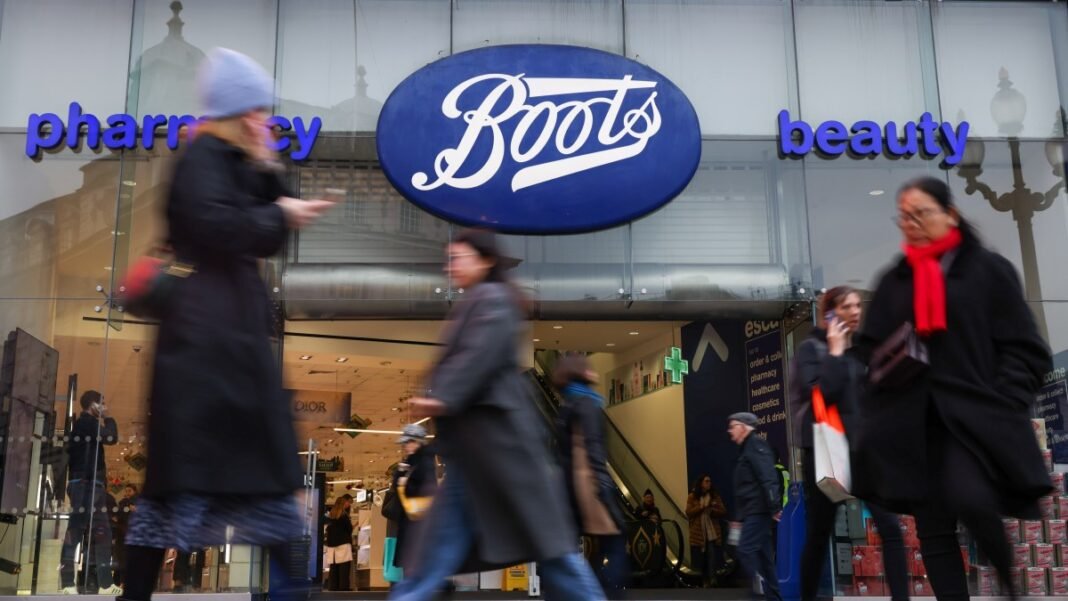Boots, the 176-year-old British chemist, is bracing for a potential change of ownership as US private equity firm Sycamore Partners nears a $10 billion (£7.8 billion) deal to acquire its US parent company, Walgreens Boots Alliance. The deal could lead to the sale or restructuring of Boots, which employs around 51,000 people across more than 1,800 UK stores, including 6,000 at its Beeston headquarters in Nottinghamshire.
Sycamore is known for buying companies and selling off parts to boost short-term returns, having previously done so with businesses like Staples and Jones Group. If the deal goes through, Boots could be sold again or split into parts, such as its retail chain, property assets, or own-brand products.
The company has seen multiple ownership changes in recent decades. After merging with Alliance Unichem in 2006, it was bought by private equity firm KKR in 2007. Walgreens began acquiring a stake in 2012 and completed the takeover by 2014. Walgreens has tried to sell Boots in recent years but failed to find a buyer at its hoped-for valuation of £5 billion.
Locals in Beeston, where Boots has been based since 1927, are concerned about what a new owner could mean for the company and the community. Some fear further store closures, job cuts, and reduced investment. Others are more indifferent, noting the company has already weathered several rounds of restructuring and ownership changes.
Once a symbol of British retail innovation, much of Boots’ vast campus in Beeston has been sold off or rented out. Around 17 hectares of the site have already been sold for housing development, and some tenants, including the company’s former wholesale and manufacturing divisions, have recently vacated.
The company’s beauty brands, such as No7 and Liz Earle, are now operated as a separate entity and may attract interest from international buyers. While No7 remains a core part of Boots’ identity in the UK, it is also sold in the US and abroad.
Despite challenges on the high street, Boots has continued to evolve, offering services such as obesity clinics and vaccinations. While more than 300 stores have closed in recent years, many remain open—though often with fewer staff and reduced pharmacy hours. Some staff report poorly maintained stores and increasing automation, which they say impacts customer service, especially for older shoppers.
Retail analysts suggest any new buyer will closely review the company’s large store network, especially as high street retail faces growing competition from discount chains and e-commerce. Survey results show more than a quarter of Boots employees fear job insecurity if a takeover occurs, and over a third believe their working conditions could worsen.
Given the state of public markets and limited investor appetite for consumer-facing businesses, a stock market listing is considered unlikely. A private sale is seen as the most probable route.
Boots has seen improvement in certain areas, particularly beauty sales and online performance. Sales on Boots.com rose 20% in the three months to February, and underlying sales in both pharmacy and retail were up around 5%, despite broader retail challenges.
However, with strict government contracts for pharmacy services and rising operational costs, profitability remains tight. Boots has already shortened pharmacy hours in many stores to cut costs.
Several firms have previously expressed interest in buying Boots, including Reliance Industries, Apollo Global Management, and private equity firms like CVC, Bain Capital, and TDR Capital. However, past deals fell through due to high valuations.
The future of Boots may also depend on Stefano Pessina, the architect of the company’s modern structure, who could still play a role in any potential sale or restructuring.
While many are concerned, some industry insiders believe Boots still has strong potential. With the UK’s ageing population and a growing focus on community healthcare services, there is a case for investment and digital transformation. Boots’ increased focus on health services could position it for future growth, particularly if it gains more flexibility to reinvest profits.
Despite uncertainties, the company remains a key part of the UK retail and healthcare landscape—with the potential, some believe, not just to survive but to thrive.
For more UK business news updates, follow London Pulse News.


